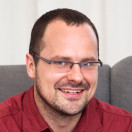THE PROGRAM OF FOUR-YEAR SCHOOL OF GESTALT PSYCHOTHERAPISTS
The training in a profession of a Gestalt Psychotherapist is divided in two stages:
- The first stage of the training – 1-Year Educational Program in Gestalt Psychotherapy (developmental course) (1 year).
- The second stage of training – School of Gestalt Psychotherapists (3 years).
Apart from the opportunity for personal development, the 1-Year Educational Program in Gestalt Psychotherapy gives the participants the opportunity to learn about the Gestalt way of working and the fundamentals of the theory. It enables them to make a decision about whether or not to apply for admission to the second stage of the training. For trainers, this program gives the opportunity to get to know potential candidates for the second stage and evaluate their development during the year.
1ST STAGE – The One-year Program of Personal Development in Gestalt Psychotherapy
- Meeting Gestalt – group integration
The purpose of this session is to prepare participants for effective learning during the one-year training by using personal experience and assimilating theoretical content through a group process.
2. Introduction to Gestalt therapy theory – background, basic principles and concepts of Gestalt therapy
- philosophical background
- psychological background
- Gestalt and other psychotherapy schools
- awareness
- contact
- therapeutic relationship
- figure/background forming process
- paradoxical theory of change.
3. Creative adaptation
The „family psychological heritage” that each person receives is closely linked to the life stories of subsequent generations. Participants of this workshop work on becoming aware of the family potential manifested in messages and meanings present in their families. The participants are asked to bring family photos. The group’s potential facilitates one’s work in realizing the impact of the family system on one’s personality.
4. Experience cycle
The workshop is aimed at raising the awareness of important aspects of the self through the process of discovering one’s style of contact. Meetings in the group and with the trainer facilitate creative possibilities for introducing change. The awareness of one’s personal style of contact lets one be more flexible with other people.
5. Body process
The workshop aims to introduce participants to theoretical framework of body work and movement, as well as to create space for experiencing the body process. Participants learn the concept of a holistic approach to human as a psycho-physical unity: feeling, thinking, bodily presence, existing in relationships and in the environment.
The workshop is focused on sensations flowing from the body – experiencing tension and loosening, gravity and lightness, warmth and coldness, pleasure and pain. In-depth sensitization to the body process helps to identify one’s chronic areas of tension.
Throughout the workshop participants work on awareness of creating and supporting an embodied field, working with breath, movement and dance. They also build a system of internal support in the body and seek individual bodily regulation in the process of contacting the world.
6. The phenomenon of the meeting
Psychotherapeutic work in the area of own emotional problems – Gestalt group therapy experience.
7. Summary of the experience and knowledge and the closure of the group process
Based on the three principles of Gestalt therapy (H.M.Yontef):
- Phenomenological character – awareness as the only goal
- Existential dialogue
- Conceptualization – holism and field theory.
Total: 232 hours
The participants who have completed the 1-year Program in Gestalt Psychotherapy (or any equivalent program at other Gestalt institution) can apply for admission to the second stage of the training program – the School of Therapists.
2nd STAGE – Three-year School of Gestalt Psychotherapists
1st year
- Introduction to Gestalt – beginning of the process, group integration
- Gestalt therapist in a therapeutic relationship
- Ethical issues in the therapeutic relationship
- Gestalt therapist in a therapeutic relationship
- Theory and methodology of Gestalt therapy
- Process theory of change in Gestalt therapy
- Body process in Gestalt psychotherapy
- Clinical interview
- Phenomenological diagnosis
- Work with an adolescent, family and couple
- Introduction to psychotraumatology
- Diploma thesis standards
- Field in therapeutic relationship – field theory
- Contact styles
- Law in psychotherapy
- Exam
Total: 208 h.
II year
- Other therapeutic approaches
- Group therapy process
- Introduction
- Practice
- Summary
- Theory and methodology of Gestalt
- Field in therapeutic relationship – field theory
- Clinical issues
- Psychopathology
- Work with the mentally ill
- Methods and techniques of Gestalt therapy
- Supervision
- Exam
Total: 244 – 252 h.
III year
- Work with selected clinical problems
- Different therapeutic approach
- Cognitive-behavioral
- Psychoanalytic
- Clinical issues
- Theory of relation to the object
- Work with addiction
- ICD10
- Gestalt Theory
- The character and creative adjustment
- Sexuality in psychotherapeutic work
- Closing workshop
- Supervision
Total: 192 hours
Total (3 years): 644 – 652 hours
Additional requirements
- Individual psychotherapy – 100h
- Group therapy – 100h
- Clinical practice – 240h
- Clinical internship – 160h
- Free choice of 50h
Total: 650h
THE GRAND TOTAL OF ALL HOURS: 232 h. + 644/652 h. + 650 h. = 1526/1534 hours
Annual assessment procedure
At the end of the 1st and 2nd Year of the School of Gestalt Psychotherapists trainees take an exam carried out by our trainers. During the exams the trainee also learns how to integrate theory with practice.
The following skills are verified at the exams:
Exam criteria – Year 1:
- ability to dialogue regarding the principles of the therapeutic contract,
- building contact,
- support and confrontation,
- selecting the client’s figure for therapeutic work,
- contact closure.
Exam criteria – Year II:
- building awareness in contact,
- selecting a figure from the background based on the phenomenological method and the field theory,
- the ability to recognize and work with different contact styles,
- understanding the creative adaptation of the client,
- using support and confrontation in the therapeutic process,
- the ability to conclude a contract with a client,
- the ability of theoretical reflection after the session.
Also, at the end of each year trainees undergo 360-degree feedback which is the evaluation based on the information gathered from other students, supervisors and themselves.
Finally, at the end of each year the coordinator of the year must give a pass in the Student’s Record Book. It is based on the records collected in the Book, which shows whether the trainee has meet the requirements.
At the end of the 3rd Year the trainee takes a final exam with external examiners. This exam can only be taken after meeting all certification requirements.
Final Certification Procedure
Trainees take a final external exam only after they meet all the certification requirements (listed below). This means passsing the final exam entitles trainees to obtain the Certificate of Gestalt Psychotherapist.
Certification requirements
- Compliance with the EAGT (European Association for Gestalt Therapy) and PTPG (Polish Society for Gestalt Psychotherapy) Code of Ethics.
Theory and Methodology
- Passing the exam in psychopathology (does not apply to persons who have completed psychological and medical studies with a specialization in psychiatry),
- Passing the ICD-10 exam,
- Passing practical exams,
- Passing all required subjects and exams in the Student’s Record Book and passing the final exam.
- Writing a diploma thesis, obtaining a credit from the supervisor and submitting the thesis at the Institute’s office; obtaining a positive review of an external reviewer. The work volume should be about 20-30 pages of computer printout.
Own psychotherapy
- A trainee’s personal psychotherapeutic experience in Gestalt at 1-Year Educational Program in Gestalt Therapy (1st stage of training) – two therapy groups: „Meeting Gestalt“ (32 hours) and „Phenomenon of the meeting“ (32 hours). Plus individual psychotherapy during the training course of at least 100 hours, done with one therapist. The therapist should be qualified to conduct the therapy during training. Individual therapy must be carried out by a certified Gestalt therapist who is a member of EAGT or a national organization and who has at least 5 years of experience as a Gestalt therapist. In each year of the Training the participant is required to undergo individual therapy sessions as follows: Year 1 – the minimum of 40 hours, Year II – the minimum of 30 hours, Year III – the minimum of 30 hours.
- During the course of the Training the student is obliged to participate in a minimum of two personal development groups (therapeutic trainings) held at the Institute (100 hours total). Instead of one training, the student can participate in two workshops (minimum 25 hours each), having consulted the coordinator.
- Each student starting individual therapy is required to notify the School Director of his/her training therapist to avoid mixing roles during the training process.
- The student must complete 50 extra hours of other developmental activities of his/her own choice. These activities must be connected to Gestalt Therapy and they should enable the student to see different styles of work within Gestalt therapy. Student exchanges with accredited institutes in Europe are welcome. These hours are the hours of contact. They can take place during or after the training.
Clinical practice
- Undertaking clinical practice is possible after obtaining the consent of the senior trainer.
- Completing a clinical placement in inpatient conditions – 160 hours, including the minimum of 5 meetings with one patient – 5 hours in total.
Patient selection must be based on the following criterion:
- 3 patients diagnosed with depression,
- 3 patients diagnosed with schizophrenia,
- 3 patients diagnosed with neurosis,
- 3 patients diagnosed with personality disorder.
Written reports from meetings in the form of computer printouts should be submitted to the Senior trainer, providing the date and duration of the meeting, while maintaining the patient’s anonymity. The report should focus on the description of interpersonal contact as well as one’s own personal experience and reflections.
Clinical placement is supervised during the duration of the Training.
- Clinical experience of at least 240 hours of sessions conducted. The number of sessions completed should be reported monthly to the small group supervisor.
- Description of one’s own therapeutic work (displaying theoretical knowledge and practical skills) with three clients in a long-term therapy – over a 6 months period.
- The permission to start private psychotherapeutic practice is granted by the Senior trainer.
Supervision
- Active participation in supervision sessions (a small group).
- Supervision sessions are credited by the supervisor.
- Meeting the conditions of the small group’s supervisor’s own program. It includes – in particular – compliance with the supervisor’s recommendations.
- Work with one supervisor during the training may last only one year (this also applies to post-training processes).
General conditions
- Obtaining the recommendation of the Gestalt Institute Board.
- The aforementioned requirements may change following the possible changes in training standards in EAP and EAGT.
- The student submits a complete set of documents at the Institute’s office. The complete documentation includes:
- a completed form with appropriate attachments (to be downloaded from the GI website),
- CD or DVD with descriptions of final works,
- completed Handbook,
- proof of payment of the certification fee.
- No overdue fees.
- Practical exams are taken in the form of a therapeutic session carried out in front of the group. The pass is given by the examiner. The student has the right to appeal to the Appeal Board against the examiner’s decision.
- The final exam is taken before an external examination board (the exam is paid extra).
- The student is entitled to appeal against the decision of the Examination Board to the Appeal Board appointed by the School Director, within 14 days from the end of the examination session.
Post-training processes
- Before obtaining the Certificate the therapist has the status of „a therapist during training”.
- If during the course of the training the participant has not managed to meet the conditions listed in the Certification Requirements section (points 1-25), after the end of the training he/she may apply to the School’s Director to extend the training process.
- Post-training processes may last 3 years. After this period a person willing to obtain the Certificate must repeat the Training.
- In order to enter the post-training process the student must sign the Agreement for the Co-ordination of post-training processes.
- The participant undergoing the post-training process bears responsibilities regulated in the Agreement signed with the Institute.
- During the 3-year post-training process the participant may apply to the School’s Director for leave. During the leave the participant does not bear administrative costs and does not use the services provided by the Institute. The leave period does not extend the 3-year post-training process.
- The student must participate in a supervision group (at least 50 hrs) or in an individual supervision of 15 hours. Supervision is carried out by supervisors from the EAGT list.
Certification procedure
- One month before the exam, students submit a description of the long-term therapeutic process in Polish and English and a detailed description of the course of 1-2 sessions.
- The exam is taken before 2 external experts (Board of Certification) who are not the trainers of the Institute. During the exam the examiners question a student about the therapeutic process described in presented documentation as well as about the Gestalt theory and issues covered during the course of the 4-year training.
- The exam takes 60 minutes. After this time the examiners discuss the results and give feedback to the student.
- Finally, the results are recorded in the exam report.
The conditions and requirements described in this document fully comply with the current standards of EAGT Training Programme and are subject to change if any modifications of EAGT standards occur.
Who can apply to the School of Gestalt Psychotherapists?
Admission requirements for the 2nd stage:
- The right motivation to become a therapist and start the training (motivation resulting from gaining a new profession and the interest in working for another person’s benefit).
- A positive opinion of the Supervisor (after completing 1-year Psychological Education in Gestalt) based on the candidate’s active participation in the workshops, satisfying interpersonal relationships, his/her progress in group dynamics, candidate’s growth during the therapeutic training, the awareness of the participant’s own resources and limitations.
- Financial conditions – a job and financial independence that will enable the candidate to pay the tuition fees.
- Experience in counselling or other psychological assistance is advantageous.
- Adequate behaviour at the interview – displaying both the knowledge of Gestalt theory and emotional activity.
- Master’s degree, especially in Psychology, Pedagogy or Medicine. Graduates of faculties other than psychology are required to take additional classes to learn the psychological knowledge needed (40 hours) – if admitted to the School.
- Before the interview a candidate submits a questionnaire which contains:
- personal data,
- essential trainings: 1-Year Educational Program in Gestalt completed at Gestalt Institute as well as other psychoeducational or psychotherapeutic trainings,
- the candidate’s own psychotherapy – individual and group – their duration and modality.
Recruitment Committee interviews the candidates during individual meetings that take 20 minutes each. The candidate’s motivation for the training, her/his own assessment of self-development during the 1-Year Program and the ability to take financial and time obligation of the training program are discussed.

























